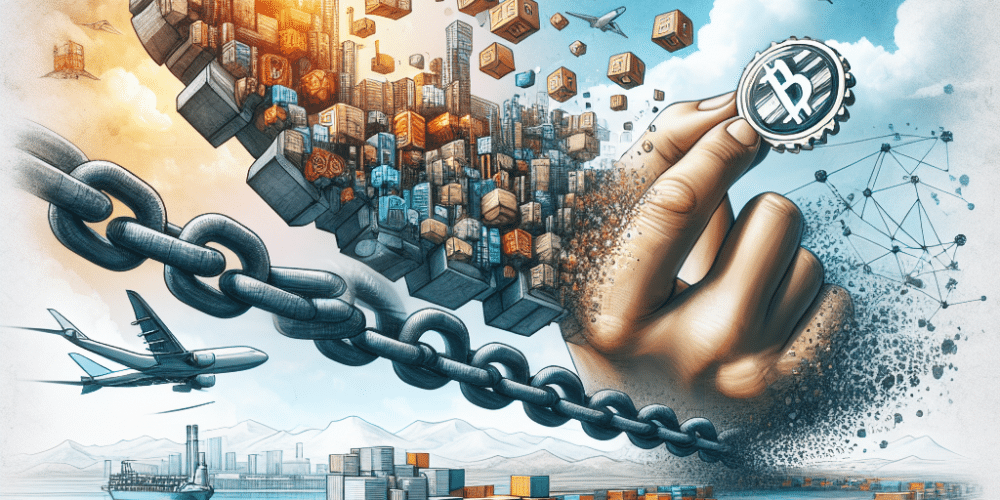In an unprecedented development within the logistics and supply chain industry, a leading global retailer has announced a full-scale implementation of blockchain technology to enhance transparency, efficiency, and security in its operations. This move is poised to revolutionize not only the way supply chains are managed but also the standard practices across various industries reliant on these networks.
The integration of blockchain into supply chain systems is a response to increasing demand for greater transparency and more secure, efficient operations. Blockchain technology offers an immutable ledger and the ability to track and trace goods and transactions in real-time, which can significantly decrease instances of fraud, errors, and inefficiencies.
The Catalyst for Change
Recent times have seen a substantial escalation in logistics complexity due to expanding global markets and an increase in consumer demand for transparency regarding the sourcing and history of products. The COVID-19 pandemic further highlighted the vulnerabilities in current supply chain systems, underscoring the need for more resilient solutions. As a result, many companies have been spurred to rethink their approach and adopt more robust technologies like blockchain.
The global retailer, which has remained unnamed due to ongoing formalities and final setups, plans to deploy a blockchain-based tracking system across its entire inventory management framework by the end of the fiscal year. This system will ensure that every item is digitally logged and monitored from the point of origin to the end consumer.
Technological Integration and Industry Collaboration
For the effective adoption of this technology, the retailer has partnered with one of the leading blockchain technology providers to tailor a system that accommodates its vast and complex supply network. This partnership is also open to other stakeholders in the supply chain including suppliers, logistics providers, and even end consumers, who will all benefit from this enhanced level of transparency and efficiency.
The implications of such integration go beyond simplifying operations and reducing costs. They include:
– Reducing Counterfeiting: By providing a transparent record of the journey of goods, blockchain technology can drastically reduce the prevalence of counterfeit goods, protecting brand integrity and consumer safety.
– Improving Compliance and Safety Standards: With the ability to track the provenance of products, companies can ensure compliance with regional and international safety standards, which is particularly crucial in industries such as pharmaceuticals and food and beverages.
– Enhancing Consumer Trust: Consumers are increasingly demanding more information about the products they purchase. Blockchain technology enables companies to provide a transparent product history, which can strengthen consumer trust and even influence buying decisions.
Expected Challenges and Future Projections
While the benefits are clear, the adoption of blockchain in supply chain management is not devoid of challenges. Technical scalability, costs of implementation, and the need for widespread stakeholder buy-in are significant hurdles. Moreover, regulatory frameworks surrounding blockchain technology are still in developmental stages in many regions, which may pose additional compliance challenges.
Experts suggest that overcoming these challenges will require concerted efforts and collaboration between technology providers, industry players, and regulatory bodies. The success of this pioneering initiative by the global retailer could set a benchmark and pave the way for broader adoption across industries.
A New Era for Global Supply Chains
As we move forward, this development could mark the beginning of a new era in supply chain management. The potential of blockchain to foster a more transparent, secure, and efficient global trade framework is vast. This initiative is not merely a technological upgrade but a potential catalyst for reshaping global supply chains.
In an increasingly interconnected and digital world, the integration of advanced technologies such as blockchain in core industry operations will likely become the standard. The initiative by this global retailer may well be remembered as a pivotal moment in the journey toward more sustainable, reliable, and transparent global supply chains.
As industries continue to evolve and technology continues to advance, keeping a close watch on this trend will be crucial for businesses, consumers, and regulators alike. The next few years will undoubtedly be a period of significant transformation, spearheaded by innovations like blockchain, setting new standards for industries worldwide.




